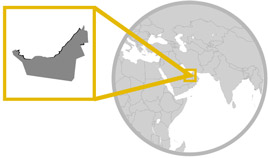Kuwait Economy:
Kuwait has a well-developed and prosperous economy primarily driven by its oil industry. The country is known for having one of the world's largest proven oil reserves. Here are some key aspects of Kuwait's economy:
Oil Dependency: Kuwait's economy heavily relies on oil production and exports. Oil revenues account for a significant portion of the government's income and the country's overall GDP.
Diversification Efforts: In recent years, Kuwait has made efforts to diversify its economy by investing in sectors such as finance, real estate, and infrastructure. These initiatives are part of the country's "Vision 2035" plan to reduce its dependency on oil.
Currency: The currency used in Kuwait is the Kuwaiti Dinar (KWD), which is one of the highest-valued currencies in the world.
Banking and Finance:
Kuwait has a well-developed banking and financial sector, with a range of local and international banks operating in the country. Key points related to banking and finance in Kuwait include:
Central Bank: The Central Bank of Kuwait (CBK) is the regulatory authority responsible for overseeing the banking and financial industry in the country.
Banking Services: Kuwait offers a wide range of banking services, including personal and business banking, investment services, and Islamic banking options compliant with Sharia law.
ATMs and Currency Exchange: ATMs are readily available in Kuwait, and you can also find currency exchange services at banks and exchange offices.
Online Banking: Many banks in Kuwait provide online banking services, making it convenient for residents and visitors to manage their finances.
Taxes:
Kuwait is known for having a simple and straightforward tax system, with no personal income tax, capital gains tax, or value-added tax (VAT) imposed on individuals. However, there are some taxes and fees to be aware of:
Corporate Tax: While individuals are not subject to income tax, companies in Kuwait may be subject to corporate income tax. The corporate tax rate is relatively low compared to many other countries.
Customs Duties: Kuwait imposes customs duties on certain imported goods. These duties vary depending on the type of product and its country of origin.
Municipal Fees: There may be municipal fees associated with various services, such as housing and utilities.
Zakat: Kuwait has a voluntary Islamic charitable giving system called Zakat. It is not a tax but rather a form of charitable donation.
Other Fees: There may be other fees and charges related to specific services, transactions, or permits, so it's advisable to inquire about any applicable fees when conducting business or engaging in financial activities in Kuwait.
It's essential to stay informed about the latest tax and financial regulations in Kuwait, as they can change over time. Consulting with local financial experts or government authorities is advisable if you plan to do business or work in Kuwait to ensure compliance with all relevant laws and regulations.

